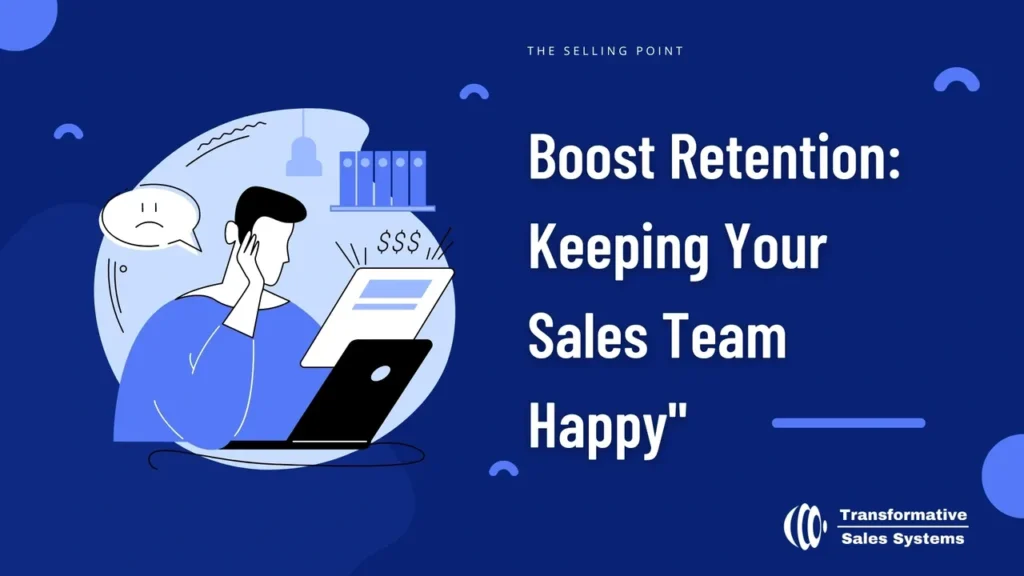Sales teams are the lifeblood of any business. They drive revenue, build relationships, and contribute to the overall success of a company. However, retaining talented salespeople can be a significant challenge. High turnover rates can lead to lost revenue, disrupted customer relationships, and the costly process of recruiting and training new hires. To retain top sales talent, it’s essential to understand why salespeople leave and what strategies can be implemented to reduce attrition.
Why Salespeople Leave a Company?
1. Lack of Career Development Opportunities
– Reason: Salespeople are often ambitious and goal-oriented individuals. If they feel that there is no clear path for advancement within the company, they may seek opportunities elsewhere that offer better career growth.
– Impact: Without career progression, salespeople may feel stagnant and undervalued, leading to disengagement and eventual departure.
2. Inadequate Compensation and Incentives
– Reason**: Sales professionals are typically driven by performance-based incentives. If they perceive that their compensation package, including commissions, bonuses, and benefits, is not competitive or aligned with their efforts, they may look for better-paying positions.
– Impact: Compensation dissatisfaction is a leading cause of turnover, particularly in competitive industries where top performers are highly sought after.
3. Poor Management and Leadership
– Reason: Salespeople thrive under strong, supportive leadership. If they experience poor management practices, such as micromanagement, lack of communication, or insufficient support, they may become frustrated and disengaged.
– Impact: Poor management can erode trust, reduce morale, and create a toxic work environment, all of which contribute to higher attrition rates.
4. Lack of Work-Life Balance
– Reason: The pressure to meet quotas and achieve targets can lead to burnout if not managed properly. Salespeople who are consistently overworked or unable to maintain a healthy work-life balance may choose to leave for a more balanced lifestyle.
– Impact: Burnout not only affects productivity but also increases the likelihood of employees leaving to seek a better work-life balance elsewhere.
5. Inadequate Training and Support
– Reason: Continuous learning and development are crucial for salespeople to stay competitive. If a company fails to provide adequate training, resources, and support, salespeople may feel ill-equipped to succeed in their roles.
– Impact: Without the necessary tools and training, salespeople may struggle to meet their targets, leading to frustration and a decision to leave.
6. Cultural Misalignment
– Reason: Company culture plays a significant role in employee satisfaction. If a salesperson feels that the company’s values, work environment, or team dynamics are not a good fit, they may not feel connected to the organization.
– Impact: A lack of cultural alignment can lead to disengagement and a desire to find a workplace where they feel more at home.
Strategies to Reduce Salesperson Attrition
1. Provide Clear Career Paths
– Strategy: Develop and communicate clear career advancement opportunities within the organization. Regularly discuss individual career goals with salespeople and provide them with the resources, training, and mentorship needed to achieve these goals.
– Benefit: By offering a defined path for growth, salespeople are more likely to stay with the company, knowing that their ambitions are supported.
2. Offer Competitive Compensation and Incentives
– Strategy: Regularly review and adjust compensation packages to ensure they are competitive within the industry. Implement performance-based incentives that reward top performers and align with company goals.
– Benefit: A fair and motivating compensation structure helps attract and retain top talent, reducing the likelihood of them leaving for better-paying positions.
3. Foster Strong Leadership and Management
– Strategy: Invest in leadership development programs to ensure that managers possess the skills to lead effectively. Encourage open communication, provide regular feedback, and create a supportive environment where salespeople feel valued and heard.
– Benefit: Strong leadership fosters trust, increases morale, and creates a positive work environment that salespeople are less likely to leave.
4. Promote Work-Life Balance
– Strategy: Encourage a healthy work-life balance by setting realistic expectations, offering flexible work arrangements, and promoting the importance of taking time off to recharge.
– Benefit: By supporting work-life balance, companies can reduce burnout and increase employee satisfaction, leading to higher retention rates.
5. Invest in Continuous Training and Development
– Strategy: Implement ongoing training programs that keep salespeople up to date with industry trends, new sales techniques, and product knowledge. Provide access to tools and resources that help them excel in their roles.
– Benefit: Continuous learning opportunities help salespeople feel empowered and competent, reducing frustration and the desire to leave.
6. Cultivate a Positive Company Culture
– Strategy: Build and maintain a company culture that aligns with the values and needs of your sales team. Encourage collaboration, recognize achievements, and ensure that the work environment is inclusive and supportive.
– Benefit: A positive, aligned culture increases employee engagement and loyalty, making salespeople more likely to stay with the company.
The Final Word
Retaining salespeople requires a strategic approach that addresses the underlying reasons why they might leave and implements solutions that promote satisfaction, growth, and loyalty. By understanding and addressing the key factors contributing to sales turnover, companies can create an environment where salespeople are motivated to stay and succeed. In the long run, these efforts lead to a more stable, productive, and successful sales team, driving the overall growth of the business.
For more information or to discuss your particular situation contact us at the following…
www.transformativesalessystems.com
765-623-5623
info@transformativesalessystems.com
To learn more about how Fractional Sales Management can help a small and midsize enterprise (SME) click the following…
https://transformativesalessystems.com/fractional-sales-manager–

